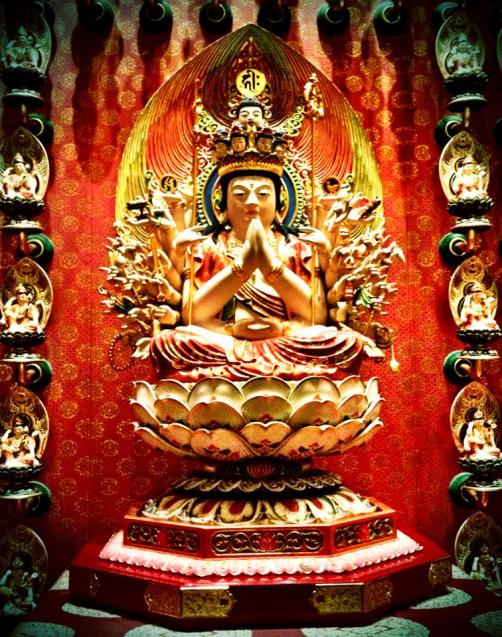
The following is a stream of consciousness essay from my yoga teacher training on how the Yamas and Niyamas – the life principles of yoga – apply to my life.
I was born and raised a Catholic.
While I’ve never been particularly observant of the religious rituals that were such an integral part of my upbringing, for most of my life I have had nearly blind faith in a higher power that moves of us all, and binds us all.
And yet I knew next to nothing about other religions until well into adulthood. In fact, I knew very little at all about Eastern philosophy and spirituality until – after reading “The Alchemist” by Paulo Coelho – I became increasingly intrigued by the power of the Universe, the drivers of my own happiness (and more importantly, unhappiness), and my ability to influence my perception of the world by merely shifting my attitude.
Up until then, control had been a very big theme for me, and I tried hard to exercise control over my loved ones, my surroundings, my feelings, my situation, my destiny, my future.
I drove to be more. To do more. To have more.
It never occurred to me until I read the words “the entire Universe conspires to help you achieve it” that all my plotting and controlling might be futile, and that the only thing I could really control were my choices and my actions. That there might be a more effective way to get to where I wanted to go.
And then I discovered yoga. More specifically, I discovered asana. And when I realized how effective it was at helping me practice going with the flow, I went in search of what this ancient philosophy could have to offer.
What I found was that some of the central tenets of the Yamas and Niyamas resembled my Catholic upbringing very closely. Surrendering the illusion of control to a higher power, trusting Divine Will, treating others with equanimity and compassion, all featured very prominently in my Sunday school lessons. Though shalt not murder. Thou shalt not steal. Thou shalt not covet. Thou shalt not give false testimony.
The Ten Commandments bear a striking resemblance to the Yamas, despite the years and miles that separate those sacred texts in space and time.
Still others, like purification, self-discipline and contentment I found through the Niyama of self-study, in searching for the mental keys that would lead to my own happiness. Therapists, authors, yoga teachers and the Dalai Lama opened my eyes to purging what doesn’t serve me (fear, anxiety, anger, resentment), pushing through discomfort and seeking those unpleasant activities that will help me grow, and accepting that despite what I might be lacking, there’s nothing stopping me from being happy in the here and now.
Despite all this knowledge and despite all this learning, I still don’t apply to Yamas and Niyamas in my life evenly.
While I practice compassion and empathy toward others, I don’t consistently show the same courtesy to myself. I beat myself up for not measuring up to my expectations, berate myself for feelings I can’t control, and regularly tell myself my best is not enough.
I’ve been known to tell a white lie or two, and while I often speak my mind with others, I consistently filter any thoughts and emotions that might leave me feeling vulnerable.
I’ve never stolen anyone’s money or property, but I steal from my own identity by transforming into someone else to make sure I gain others’ acceptance.
I don’t horde my possessions, but I horde the thoughts, feelings and knowledge that have all my life made me feel more powerful. I cling on to a false identify. To a (young) body and to a (brilliant) mind, both of which bear little resemblance to the pure consciousness that is my true self.
I haven’t cleaned my house in weeks.
I run in the opposite direction at the first sign of awkwardness, at the first sign of discomfort, instead of having the self-discipline to stay.
I turn a blind eye to my real self, in favor of the story.
I control. I plan. I resist. Still. I plot, I catch myself, I smile knowingly, and I keep plotting.
And yet I am content. I’m content that I’m exactly where I need to be in my journey, acknowledging my imperfections and the possibility these imperfections offer. I’m content with where I’ve gone, with where I’ve been, with where I’m going. I realize I can change myself – I can change my situation – but that I am where I am and it is what it is, since stacking my life up against any expectations is the key to lack of contentment.
The Yamas and Niyamas apply to every aspect of my life. They apply to my relationships with myself and others. They ARE the drivers of happiness I was looking for, though not the heady, giddy happiness I thought I would find. Despite being born and raised a Catholic – and not a very good one, at that – they’re a recipe for the purer kind of happiness that only ten lifetimes of practice can help me achieve.
I may not perfect the recipe in this lifetime. But no matter. Now that I know the ingredients, I can work on getting better at mixing them. One ingredient at a time.







